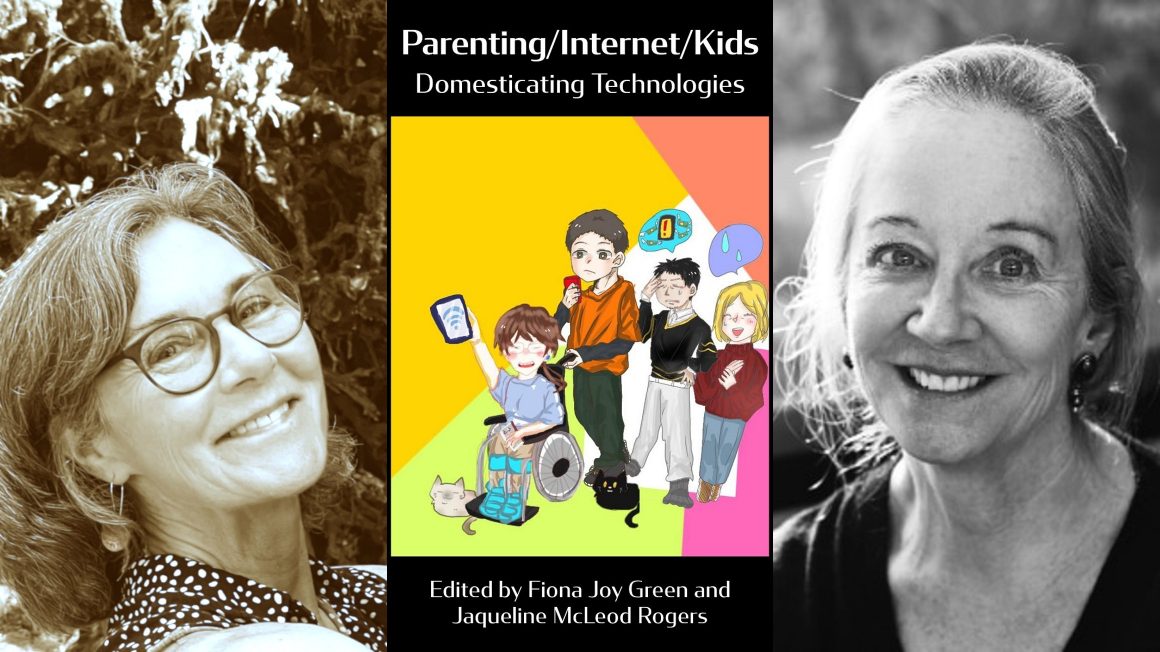Parenting/Internet/Kids: Domesticating Technologies takes up the longstanding question of whether technologies help or harm us — are they opening possibilities or taking away initiatives and agency?
Co-edited by University of Winnipeg Drs. Fiona Green, Department of Women’s and Gender Studies, and Jaqueline McLeod Rogers, Department of Rhetoric, Writing, and Communications, this new collection of parent essays focuses on families and homes.
For more than a decade, Green and McLeod Rogers thought about the complex relationship between blogging and parenting, and how it’s a boon for information sharing, but also easily abused by oversharing.
“From this angle, we were interested in the responsibilities of mothers and parents towards their children. Yet, what nagged at us as we took this approach is that it seemed to verge on ‘mommy blaming’ and heaping all accountability on already beleaguered parents,” they said. “We wondered what kids were doing and saying, and we wondered about the range of technologies that were influencing family home life. We didn’t want another book telling mothers how to do more work.”
The pairing asked potential contributors to propose topics exploring the role of computers and technology in their homes and their understandings of how computers have made their way into family values. They heard from parents around the globe: some from Canada and the USA, and also from Australia, Finland, India, and Japan.
Chapters in this collection consider questions of domestic labour and parental responsibilities, while others focus on how children use, and are influenced by, the internet and social media, whether for positive or troubling outcomes.
This collection is broken down into four chapters:
- Moms on Media: Stage and Screen;
- Kids on Media: Windows and Doors;
- Enabling: Digital/Physical Nexus; and
- Regulating Domestic Use and Surveillance: Who’s in Charge?
“As this breakdown indicates, we were able to spread the focus on parents and on children,” they said. “While a number of chapters have a critical edge, it’s fair to say that authors in section three who look at medical technologies are prone to emphasize the positive, even miraculous, advances.”
Green and McLeod Rogers say this collection is a great read for all parents because, with the arrival of COVID-19, people have let technology into their homes without analyzing the downside and that it’s time to “exercise discernment and raise questions about what we need, what helps, and what make us vulnerable and overly dependent.”
“The logic of the book supports the argument that we benefit from medical technologies as we deal with new strains of COVID and developing viral outbreaks such as Monkeypox,” they explained. “At the same time, it argues, using many examples, that we need to be careful and considerate, thinking about limitations rather than carte blanch adoptions.”
To learn more about Parenting/Internet/Kids: Domesticating Technologies, visit Demeter Press’ website.





